Davide Cucino has lived in China for 26 years, having first come to study at Beijing University in 1988. Upon graduating he was offered a job in Beijing and so never fully returned to his native Italy.
He was serving as Chairman of the China-Italy Chamber of Commerce (CICC) when the European Chamber was being formed and he became involved to give input from an Italian perspective. He spent some time working on the Articles of Association and other relevant documentation to ensure it was taking the single national chambers into consideration. He had an interest, too, as a company representative of Fata who became one of the Chamber’s 51 founding companies.
He has been active in the Chamber as a member, States representative, vice president and eventually president. He has also been involved in the Chamber’s Public Procurement Working Group and was recently elected as its chair.
After serving a maximum three consecutive terms as president Cucino is now preparing to hand over the reins after the Chamber’s April elections. EURObiz’s Carl Hayward caught up with him to talk about his time at the Chamber, discuss some of his achievements and find out a bit more about the man behind the bow tie.
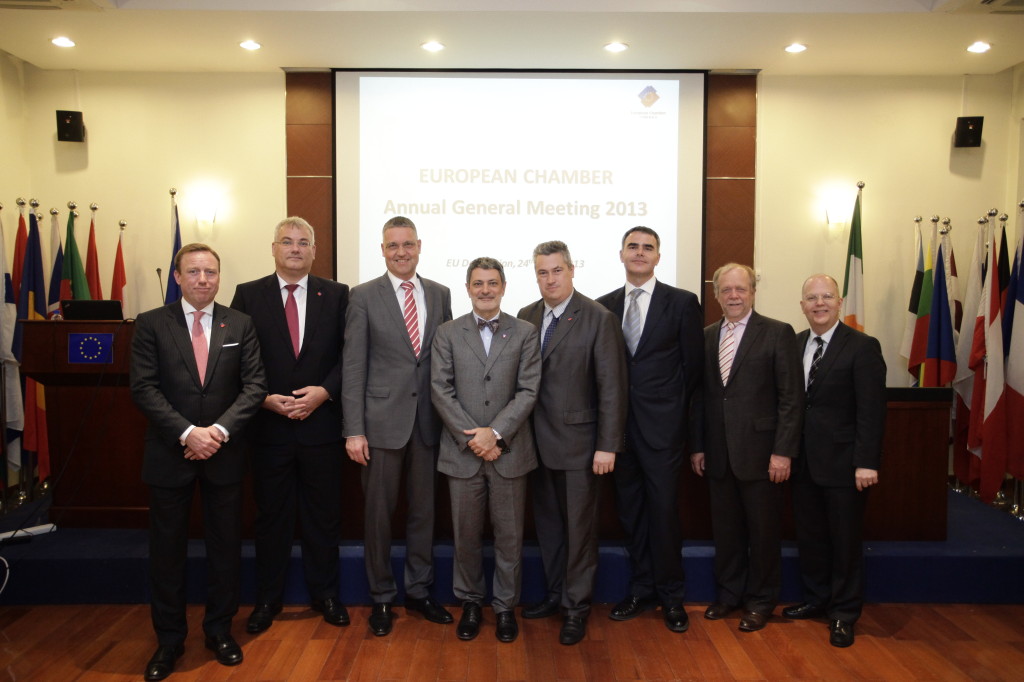
The newly-elected Exco after the 2013 AGM with the EU Ambassador to China, from L-R: Jens Ruebbert, Holger Kunz, EU Ambassador Marcus Ederer, Davide Cucino, Stefan Sack, Eduardo Morcillo, Francois Bernard and Mats Harborn
On the Executive Committee…
What changes have you seen take place within the Chamber’s Executive Committee (Exco) in the way that it functions and drives the Chamber?
I don’t want to use this sentence, but I am going to: when I arrived I found a well-oiled machine. It was well organised in terms of format, and I tried to stick to some predefined rules, such as when to hold meetings and for how long, which generally, for a Southern European, is difficult because they are held from 8-10am! Everyone was expecting that I wouldn’t be able to arrive on time, which I personally think was wrong because I have probably been the only one arriving on time since the very beginning!
Even earlier than the Germans?
Yes, even earlier than the Germans!
I would like to say that I have had three Excos with fantastic people. I am very proud of this last Exco because we have been able to share competencies and tasks among all of the Vice Presidents and its other members. Everyone was very much visible and able to share their own experience on a specific topic or task. This has enabled us during the last year to be able to organise more high-profile events than before.
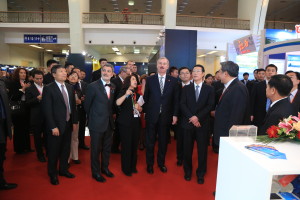
President Cucino attends the EU-China Exhibition on Urban Development in Beijing with Zhang Gaoli, Vice Premier of the State Council
On government affairs…
Which government affairs strategy stands out from others in terms of its success and impact?
I found a situation at the Chamber where we had already obtained a lot of credit from the Chinese authorities. I believe that we have tried to continue to have the same kind of relationship and dialogue with the most important ministries and agencies, while at the same time increasing our relations with bodies which were perhaps not very well covered, or not covered as much as they are now, in terms of think tanks, foreign affairs and Party relationships.
On the European side, we have tried to increase the visibility of the Chamber. We succeeded in meeting the President of the Commission several times, and last year we achieved a record in terms of the number of commissioners that we met during the presentation of the Position Paper in Brussels, and also the number of ministers and prime ministers that we met during our visits to the other Member States’ capitals.
On European unity…
Why did you make a concerted effort to focus more on Eastern European Member States?
The idea is to be as inclusive as possible. We already have a body that is inclusive because we have a Supervisory Board that includes one board member from each Member State Country, so we have 28 Supervisory Board members.
But I also think we need more contact with the companies from those member states, and we need to secure their contributions to the Chamber. Not just in financial terms, but also in terms of ideas and in terms of the new challenges that we may face by having those companies as members of our organisation.
Why did you make so much effort to increase the number of cities in Member States that were visited on the European Tour?
It is extremely important that we go to these cities to deliver the messages of our Position Paper and the Chamber priorities to the various governments. The reason for making our reach broad as possible is to send a signal to Brussels that we believe in unity. This is important because it demonstrates to Brussels that the Chamber is an important tool in helping to secure this unity.
On ethics…
You’re known for your integrity in meetings, but has there ever been an occasion, or a meeting with a particular individual, where you’ve thought, I’d really like to push my own agenda here?
Oh yes, not just once, but many times! At those moments you need to make a choice if you seriously respect the position you are holding. You have been elected by people who have interests that are sometimes different from yours—sometimes these views come from companies that are in competition with yours—so you cannot take advantage of this situation.
One thing that gets me nervous is when I bring people to meetings with me, and even before we have started to discuss industry issues they start to introduce themselves as a representative of their specific company. That really gets me crazy.
On progress…
Why was it so important for you to push the ‘digital agenda’ at the Chamber?
Times change and I don’t think we should rely on past glories. Every time there is a situation in which things are going well, people and organisations tend to relax and take advantage of that moment, without being aware that society is continuously changing and developing. In spite of any success you attain, there is always a lot of room for improvement.
On doing more…
What were some of the biggest challenges during your time here?
We need to concentrate even more on delivering our message to a number of Chinese stakeholders and to increase our interaction with Chinese companies. We have had a lot of dialogue at institutional level but sometimes, as we have said many times in our Position Paper, some of the challenges that our member companies have, who have invested in China, are the same challenges that domestic Chinese companies are facing. So we don’t need to always treat them as our competitors; we are often affected by the same regulations and the same practices and so we should try to find a way to set up a channel of dialogue with them.
On the future…
How much will you continue to be involved with chamber?
I think that the European Chamber is a fantastic organisation, and I will stay involved and continue to give my contribution, taking into account that one of the companies in our group is an Advisory Council Member. But you will never see me stood in a corner criticising anything that is not being done the way I used to do it, or other’s actions that have been taken in a different way to how I would have done things.
Finally, have you got any tips for the next president?
I expect the next incumbent will be very different from me, and the way that I was president. I think this is the secret to keeping an organisation alive and moving forward. Having said that, I hope that they will take advantage of the fact that we have an enthusiastic number of people willing to work and to travel, to enlarge, even more than I did, our outreach to the various capitals during the European Tour. Last year in Brussels we had 35 people taking part, which is a signal that this can be done.
Also, one of the last things I hope to do as President is to initiate a process that will enable the Chamber to amend our Articles of Association with respect to how voting can be carried out for the elections of members of the Executive Committee and other changes that the current Executive Committee agree would be beneficial. As an outgoing president, this is the perfect time to start the ball rolling on this issue as it shows that the changes being recommended for consideration are not being proposed out of any vested interests on my or the current board’s part.
The modifications that the outgoing Executive Committee would like to see brought in include bringing our voting processes into the electronic age. Doing so is in keeping with our ‘One China, One Chamber’ ethos as it would allow all of our members across China, irrespective of location, to be a part of the elections for our Executive Committee, thus further improving the Chamber’s openness and inclusivity.
These constitute, more than tips for the next president, a legacy that I hope will be continued.

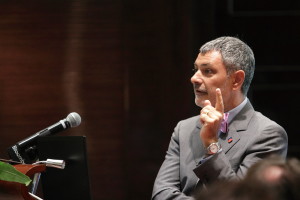
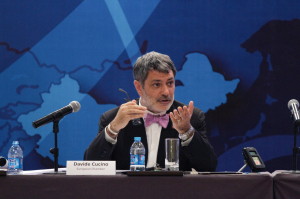
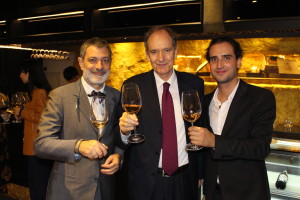

Recent Comments